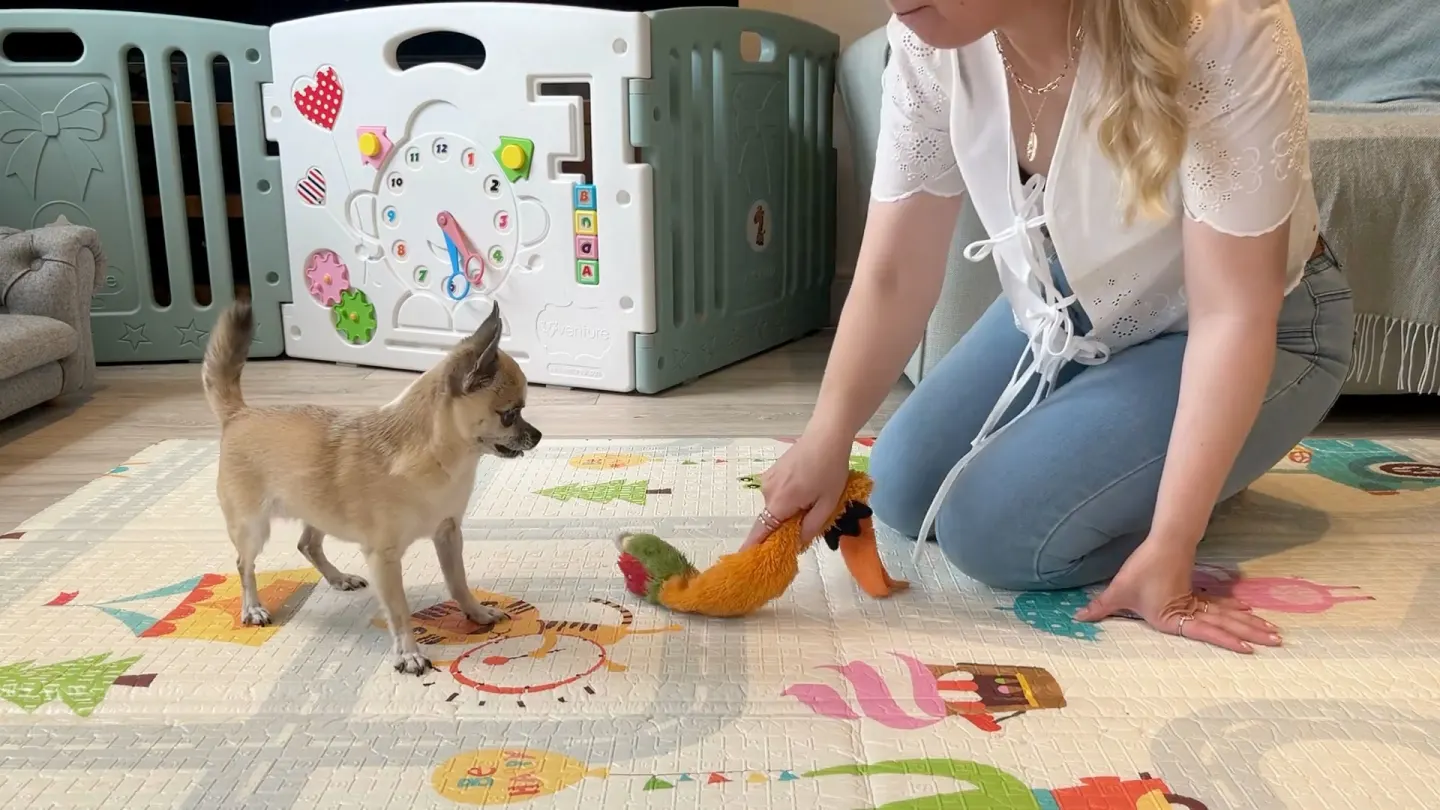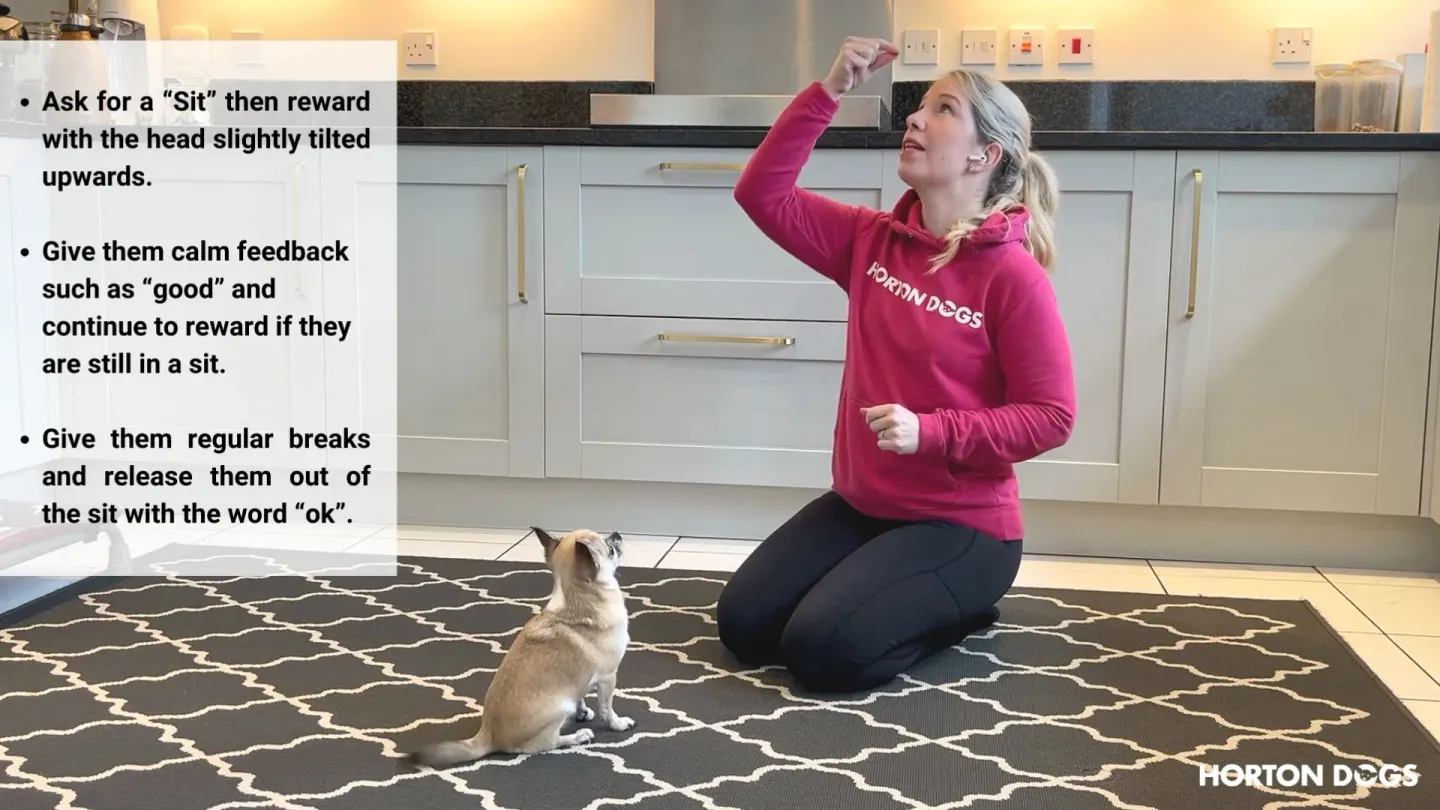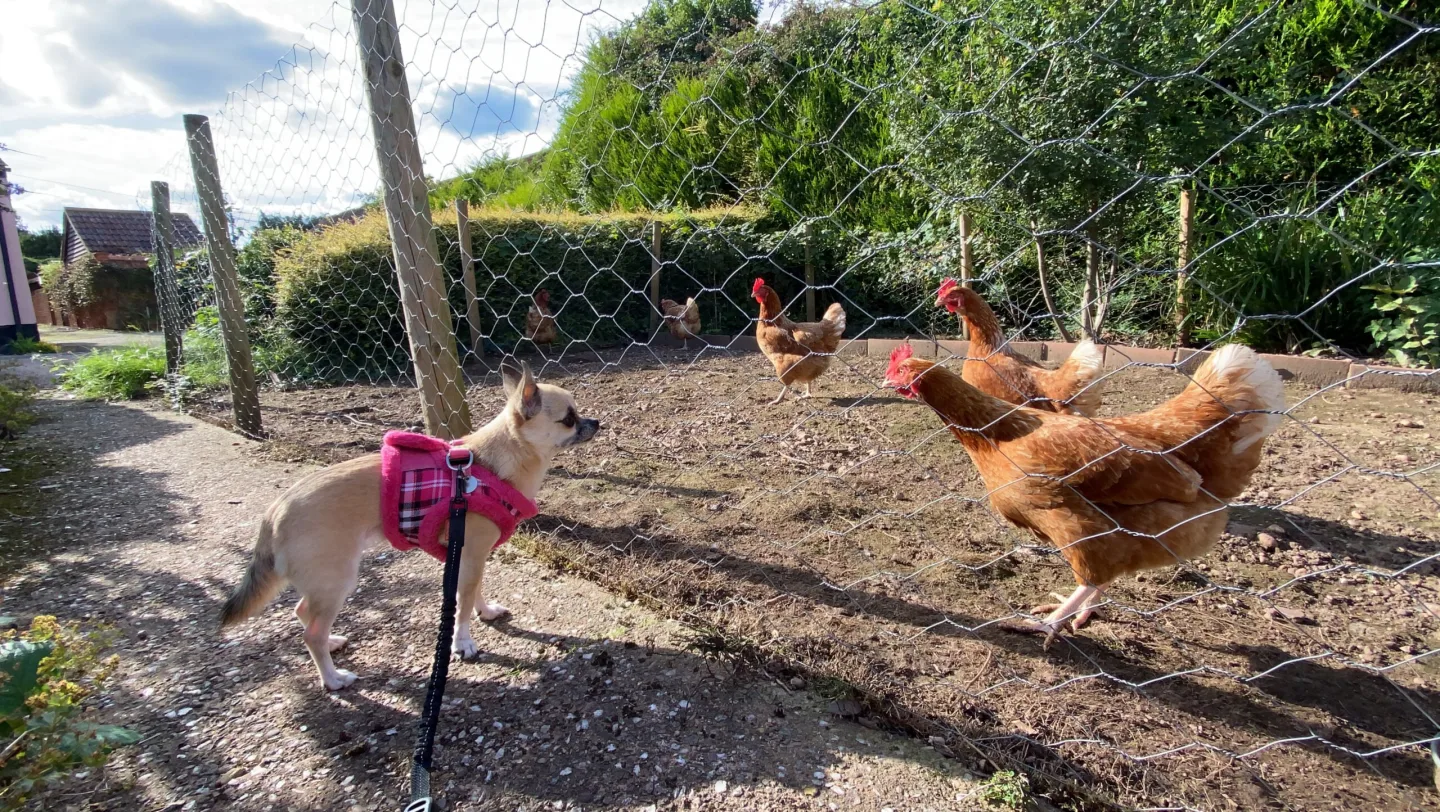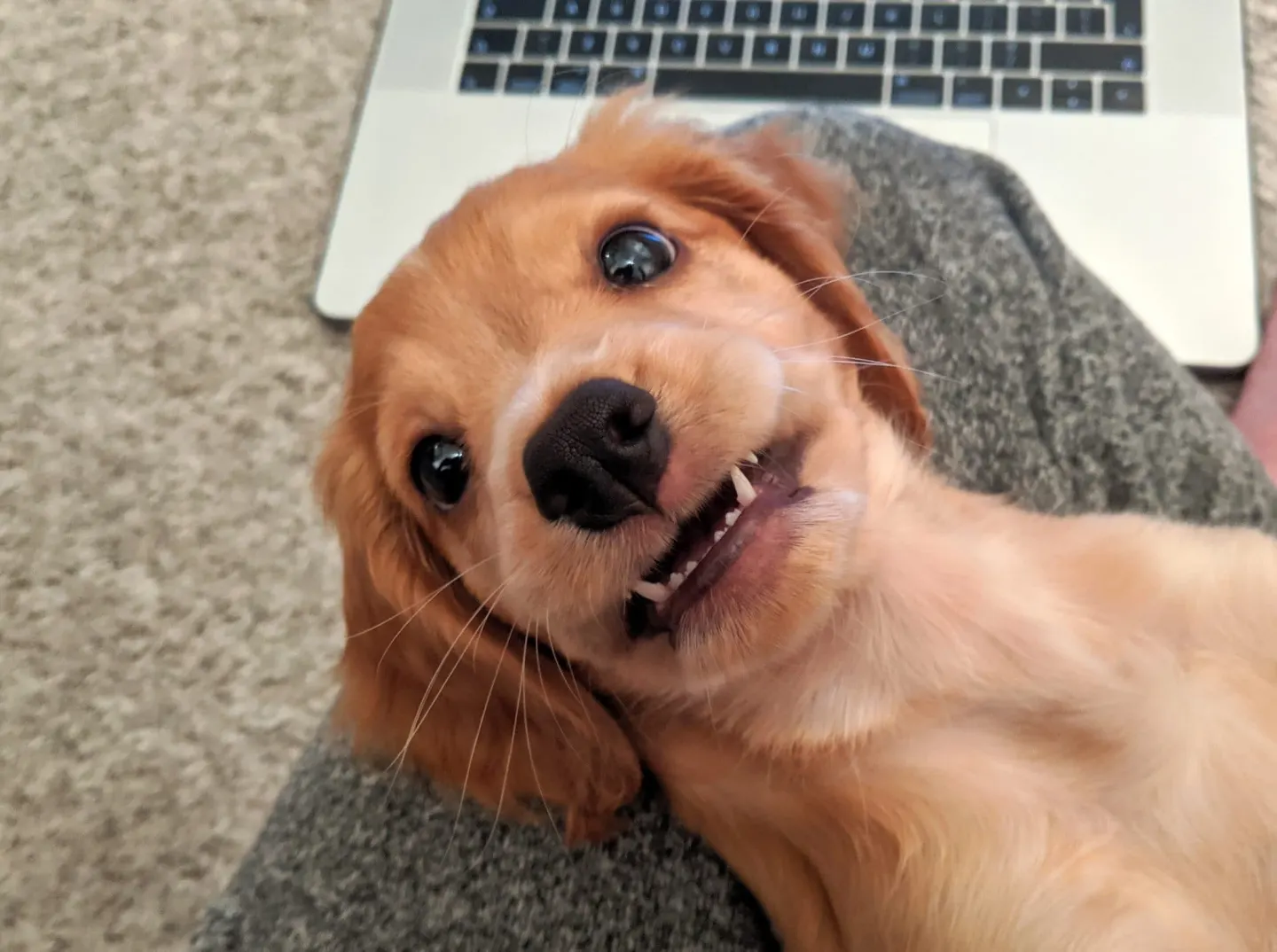
How your puppy learns best
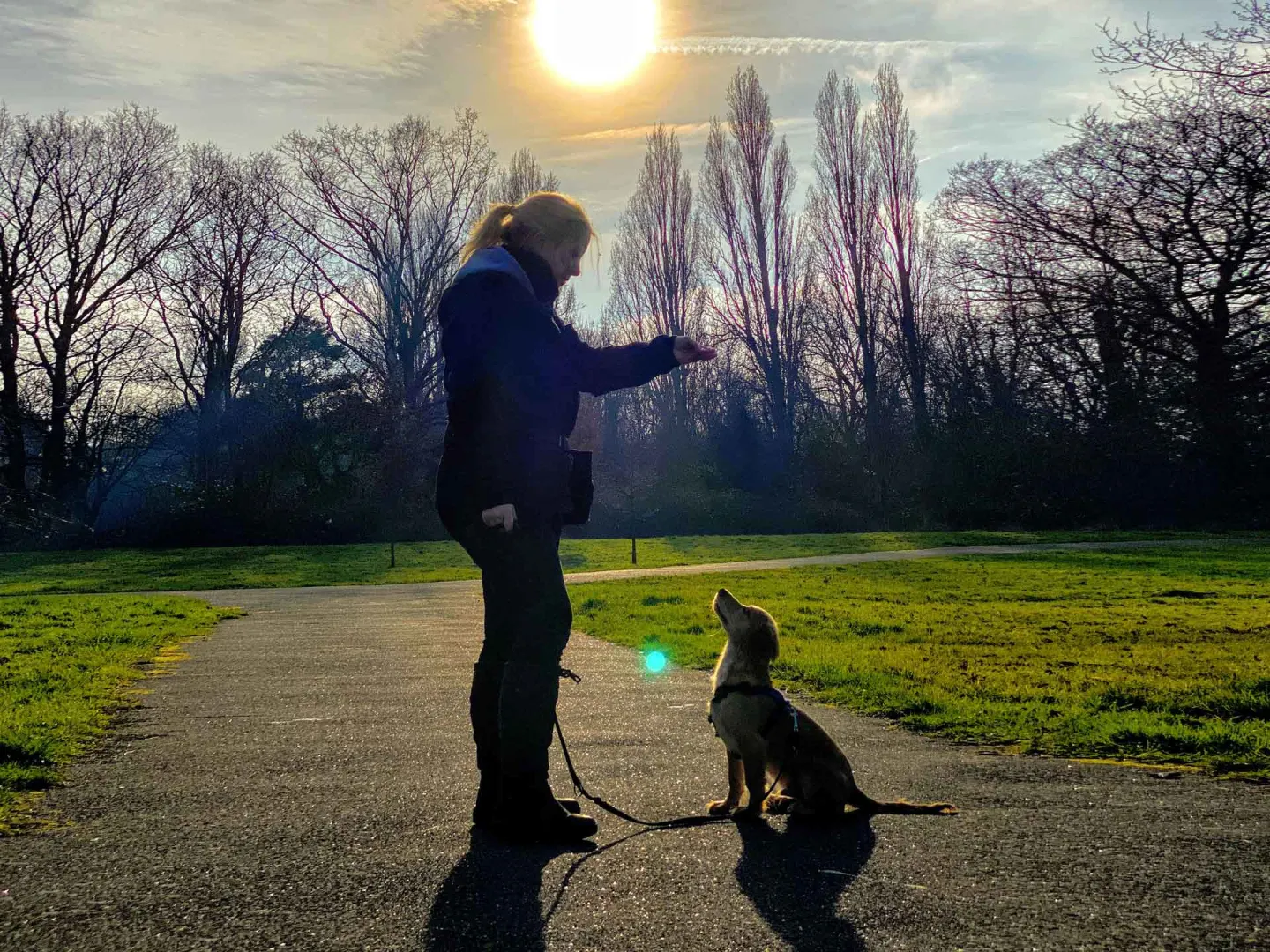
Understanding how your puppy learns is the secret to successful training. This guide explains the ways your puppy’s brain works, so you can build good habits and a strong, positive relationship from day one.
With practice this will help you achieve:
- See real progress with your training.
- Teaching your dog important life skills.
- Building good manners and habits.
- Creating a confident, well-adjusted adult dog.
What you'll need
- High-value rewards (treats, praise, toys)
- A puppy-proofed space for success
- Patience and a positive attitude
Step-by-step
- Manage expectations: Keep training to a level they can be successful, set up the environment for success and use management to prevent unwanted behaviour while they are still learning.
- They learn through success and repetition: Make the training short and fun, puppies will also learn much faster if they are getting it right. When making the training harder for your pup, do this bit by bit, baby steps so the training sinks in.
- Understand association is always happening: Every moment, your puppy is linking feelings to their environment. Focus on creating a low pressure, safe experiences to build a confident dog who sees the world as a positive place.
- Use consequences to shape behaviour: Your puppy will repeat actions that lead to good things. Generously reward the good choices you see, like sitting politely, to encourage it to happen more often.
- Set up the environment for success: Use puppy pens, gates, and crates to prevent mistakes before they happen. This allows your puppy to make good choices naturally, like choosing to chew their own toy instead of your shoes.
- Avoid harsh methods: Never use pain. Harsh handling or unpleasant consequences can create anxiety and damage your relationship. Remember — your bond with your puppy is the most valuable thing you have.
- Connection before correction: If we only focus on stopping unwanted behaviours, we might spend all day saying “No!” to our puppies. Instead, prioritise helping your puppy understand what you do want from them. A connected puppy learns more willingly and confidently.
- Corrections have their place: This doesn’t mean you should never correct your puppy. There are moments when a gentle interruption — such as “Ah-ah” — can help signal that a behaviour isn’t appropriate. However, corrections alone aren’t what we rely on. The real progress comes from teaching and rewarding the behaviours you want to see instead.
- Contact me for help: If you need to build in more clarity and under
Top tips for success
- Your relationship with your puppy is your most powerful training tool. Protect it!
- If your puppy makes a mistake, redirect them to what you’d like them to do instead.
- Focus on rewarding everything you like, no matter how small it seems.
Members only
This resource is a special perk for our members. To join us, first is to book one of our services. If you’re already a member, log in to enjoy full access.
Feeling unsure how to apply this?
Paragraph: Understanding the theory is a great start. If you want personalised help putting these principles into practice with a step-by-step plan for your new puppy, a Puppy Head Start session is the perfect way to begin.
